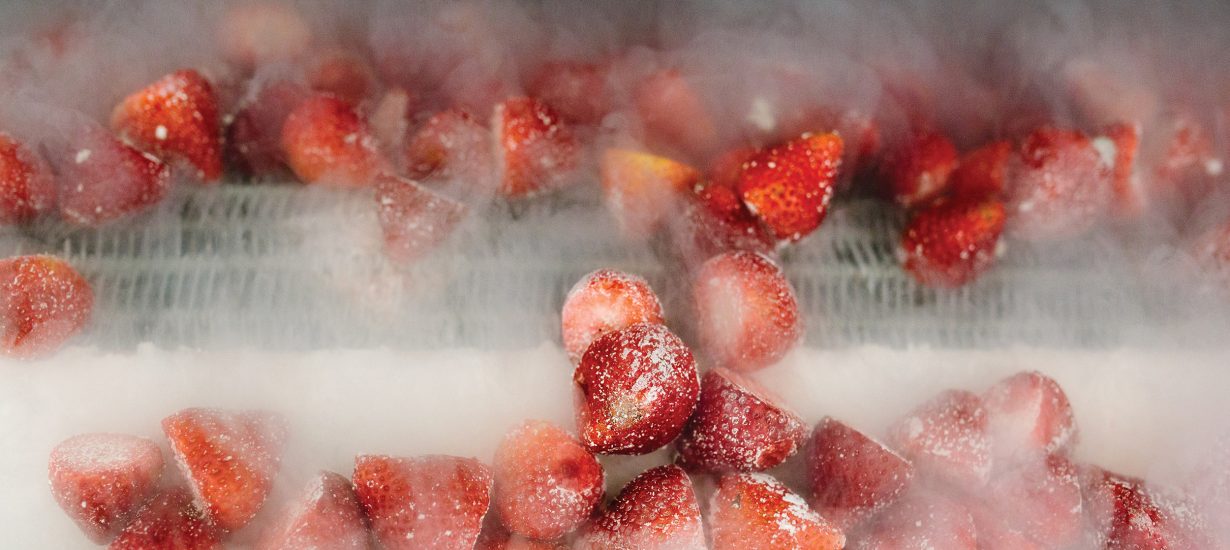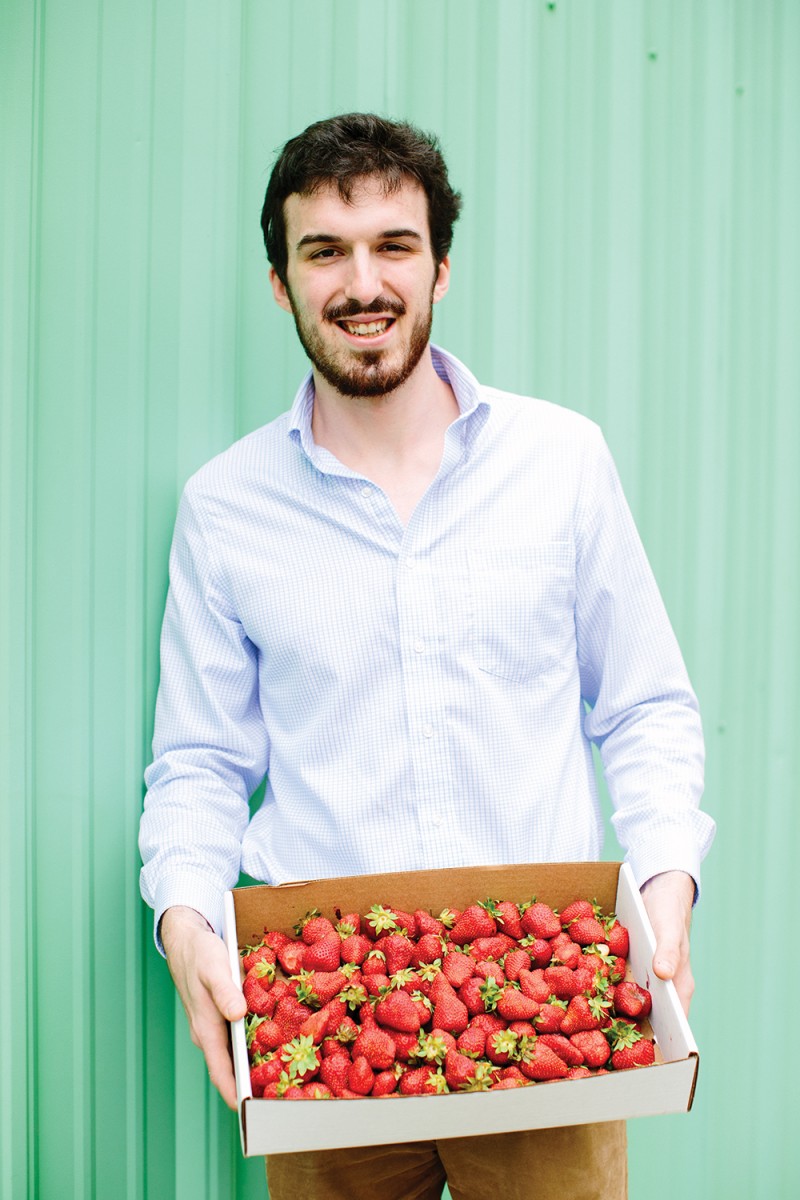The Big Chill

‘I want to help as many farmers as possible,’ says Patrick Mateer ’15. ‘You need volume to make an impact.’
The mechanical heart of Seal the Seasons weighs tons.
“This is the big daddy of flash freezing,” says Patrick Mateer ’15, CEO of Seal the Seasons, showing off the newly leased machine in his Hillsborough plant.
It also pumps out tons of product. Mateer was an economics major, and as he calculates it, the flash-freezing behemoth will let the company freeze 1,000 pounds of produce per hour; last year, without it, Seal the Seasons could freeze 600 pounds per day.

Patrick Mateer ’15, CEO of Seal the Seasons. Photo by Anna Routh Barzin ’07
North Carolina berries, broccoli and spinach enter the machine’s mouth in their perishable state, are sprayed with liquid nitrogen and emerge ready to stay for as long as a year in grocers’ freezer cases.
“I always wanted to work on this scale,” Mateer said. “I want to help as many farmers as possible. You need volume to make an impact on their lives.”
Seal the Seasons’ goal is to help make small-scale farming sustainable by increasing the amount of local produce in stores. And he’s primed to ramp up.
“Patrick’s dream is to take Seal the Seasons nationwide, to use North Carolina as a model for states like Oregon,” places where the “buy local” ethos is strong, said Carol Peppe Hewitt, company advisory board member and founder of Slow Money NC, which finances sustainable food and farming businesses. “We keep telling Patrick, ‘OK, but right now let’s accomplish step one: Feed eaters in the Southeast.’ ”
The idea for Seal the Seasons came from Daniella Uslan, project manager with UNC’s Center for Health Promotion and Disease Prevention. She envisioned a nonprofit that would freeze farmers’ “seconds” — nutritionally sound but imperfect produce — and sell it at a price low-income families could afford. She tapped Mateer, a Bonner Leader at UNC’s Campus Y who had been volunteering with the local nonprofit Farmer Foodshare, and Will Chapman, a graduate student in nutrition at UNC’s Gillings School of Global Public Health.
The three brought the idea to Alan Fenwick, a retired aerospace executive who’s mentor-in-residence with the UNC Campus Y CUBE (Creating University-Born Entrepreneurs) Incubator. Under Fenwick’s guidance, Seal the Seasons retooled as a for-profit; the idea of using seconds fell by the board, in part because farmers weren’t interested — they wanted a bigger market for their best stuff — and Mateer notes that hiring people to cut off blemished or discolored parts adds another layer of cost.
Last year, the company won $50,000 in the State Employees Credit Union’s annual Emerging Issues competition. Mateer has raised $150,000 in community loan financing as well as money from investors and banks. He recently hired a staff of four.
Besides working with farmers, managing finances and competing on price, there are other points on the learning curve as the company matures.
Last year, its first year in stores, Seal the Seasons produce came in clear packaging. Mateer soon figured out why other companies use opaque packaging showing images of fresh berries and glistening greens. If frozen produce thaws, the nutritional effect is nil, but frost ruins the aesthetics. This year’s packaging will be opaque, with photos and quotes from farmers and a map of North Carolina farms.
While Mateer thrives on managing thermostats, nitrogen tanks and supermarket contracts, he says he most enjoys spending time with the farmers “driving around in pickup trucks.”
— Ann Loftin
Thanks for reading the Carolina Alumni Review
Carolina Alumni members, sign in to continue reading.
Not yet a member? Become one today.
